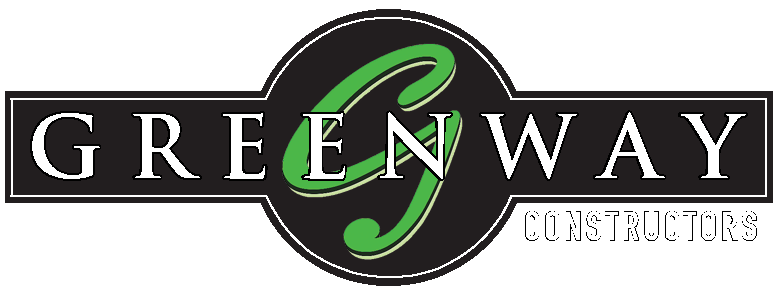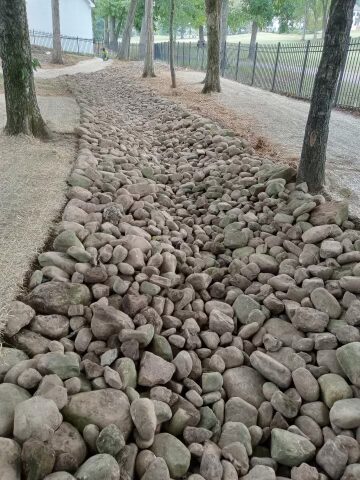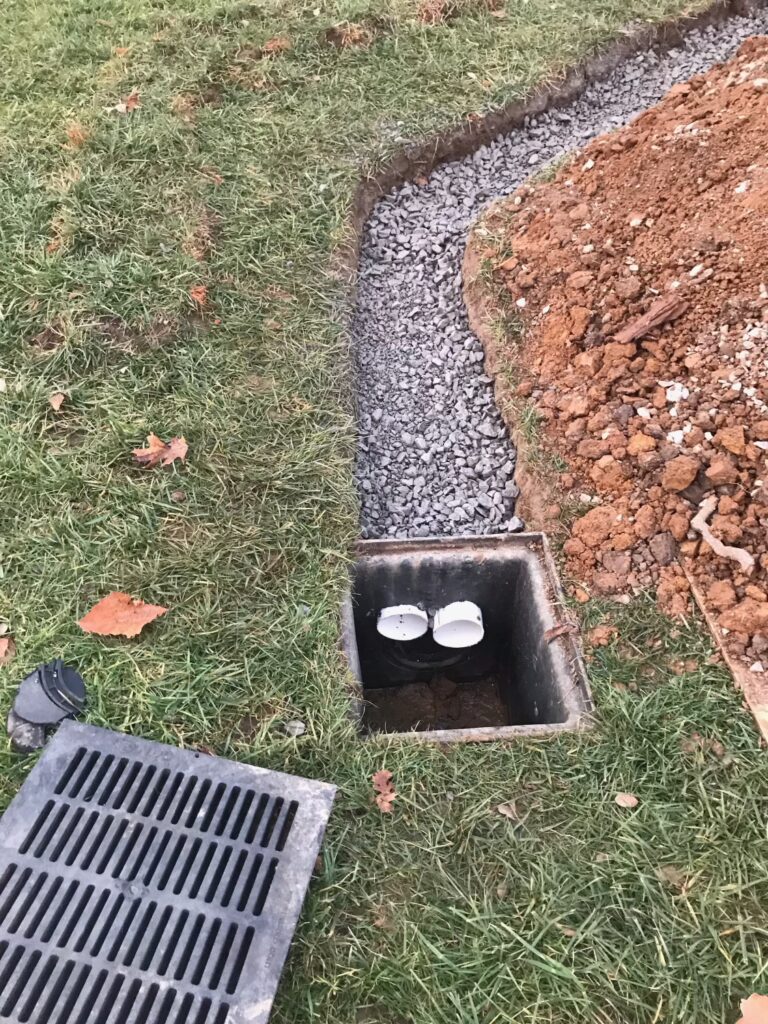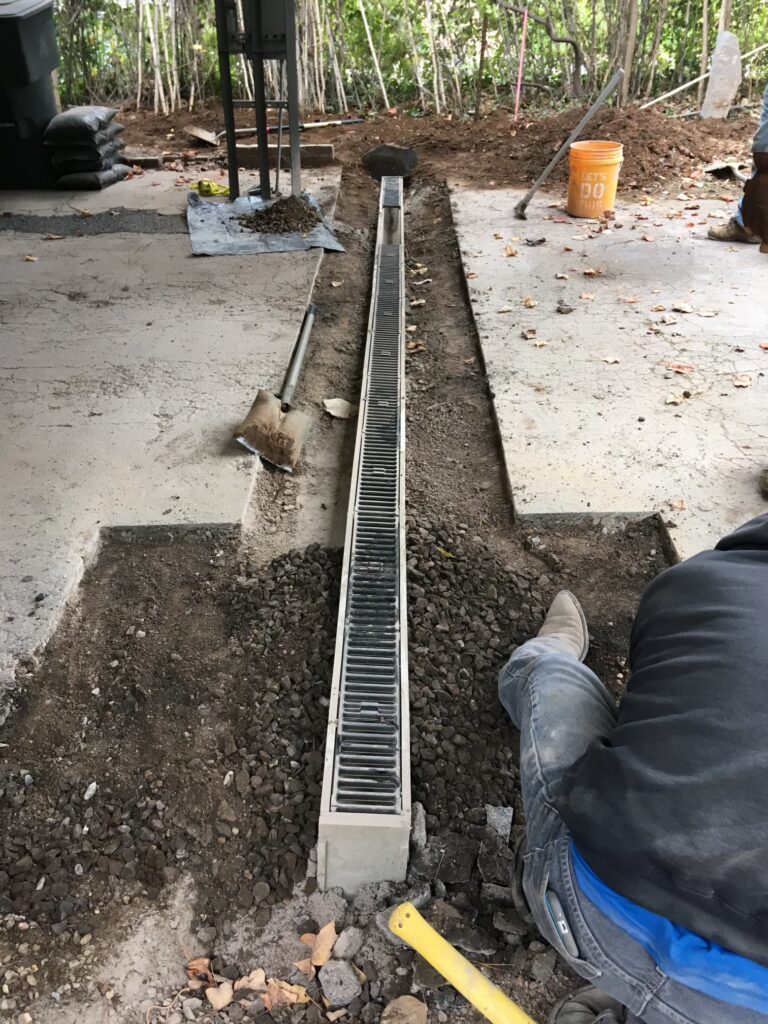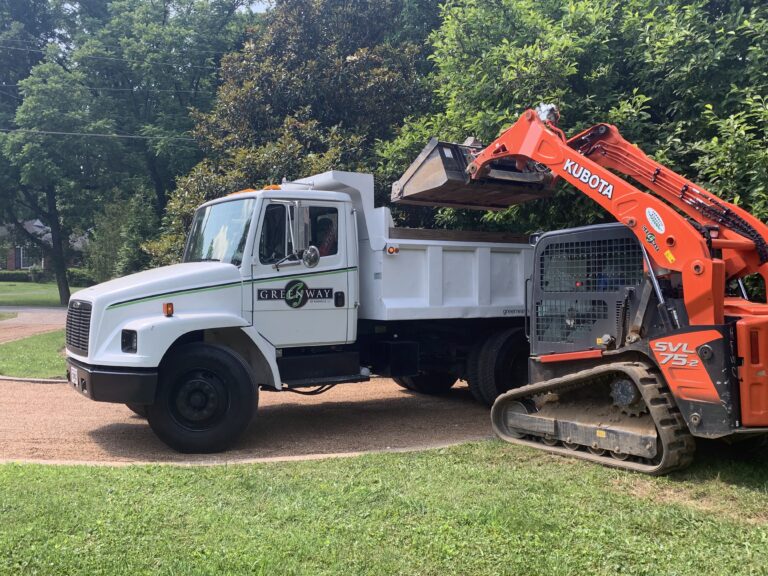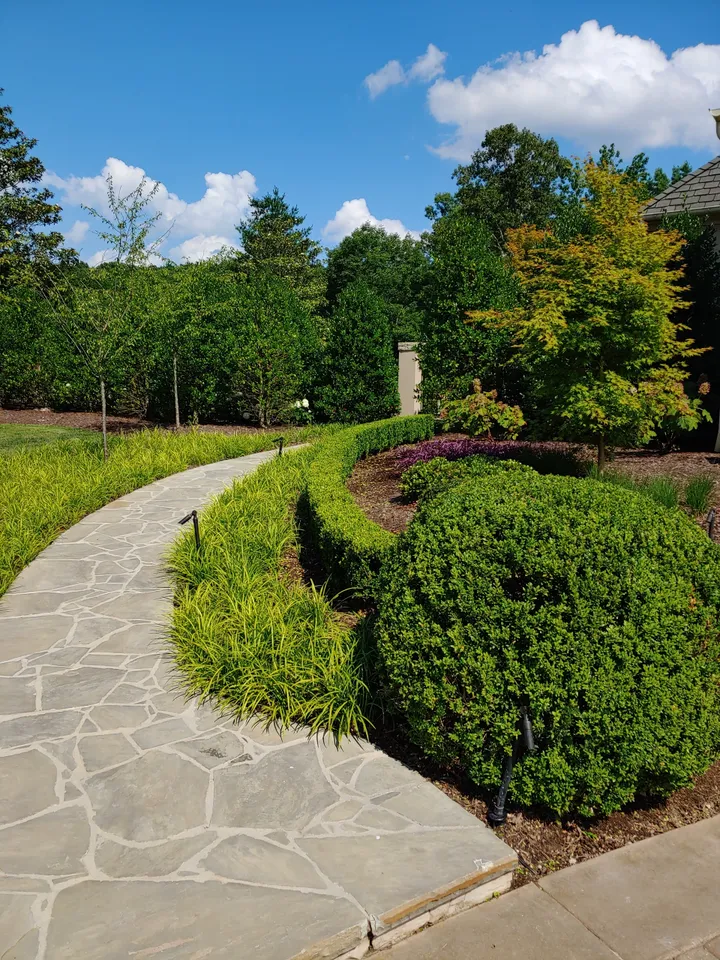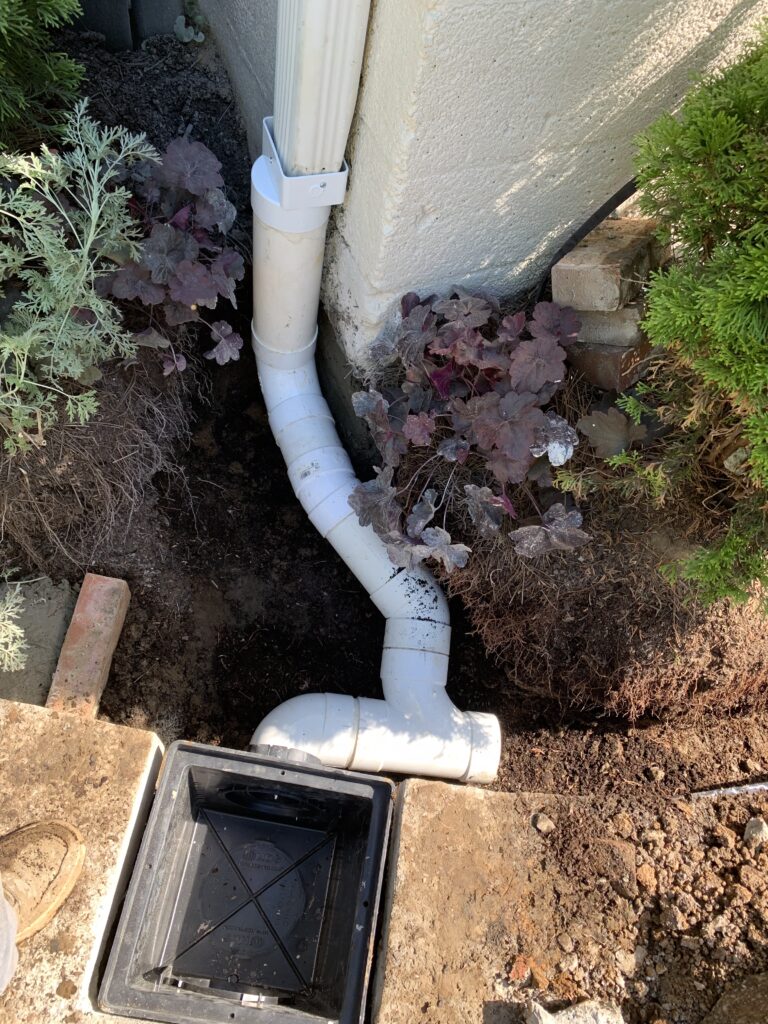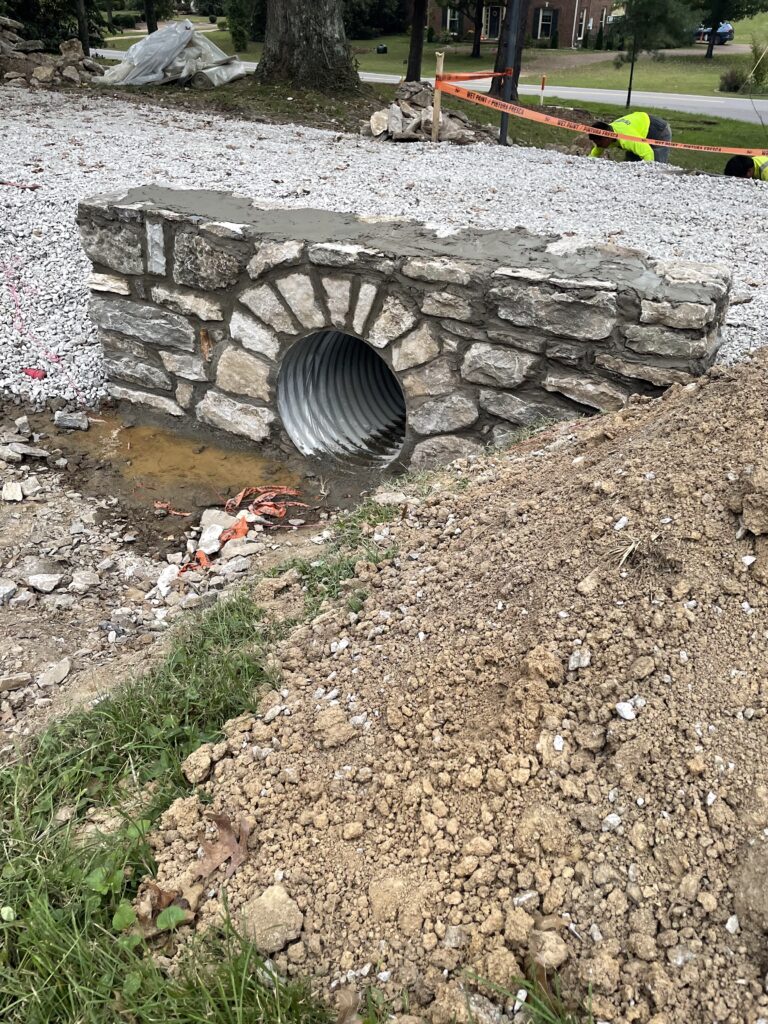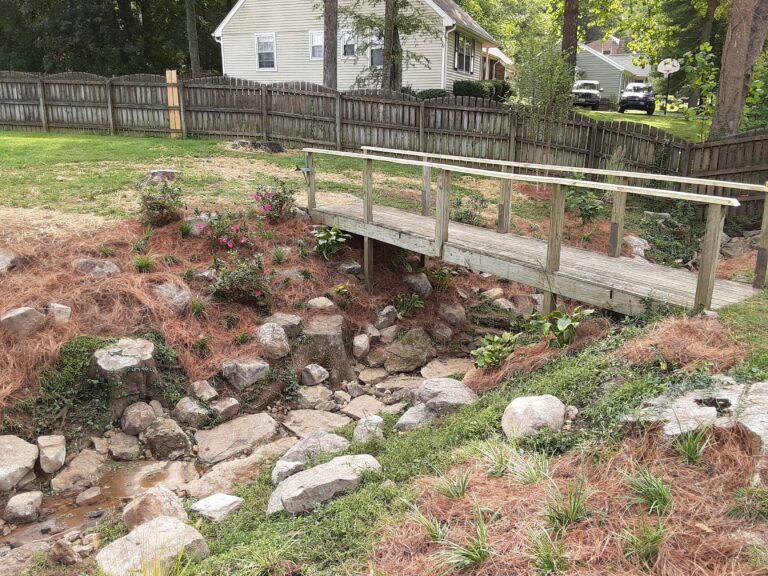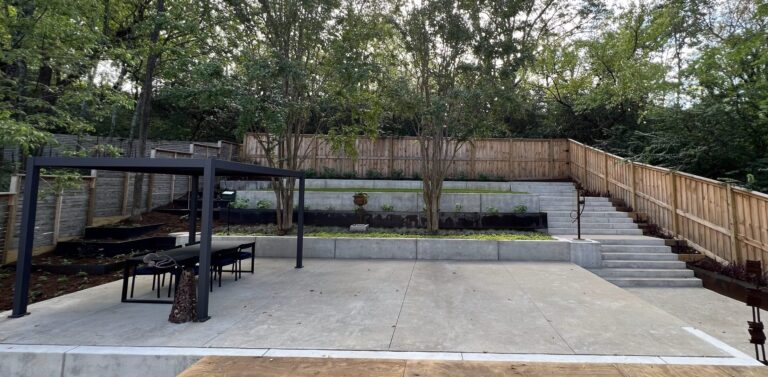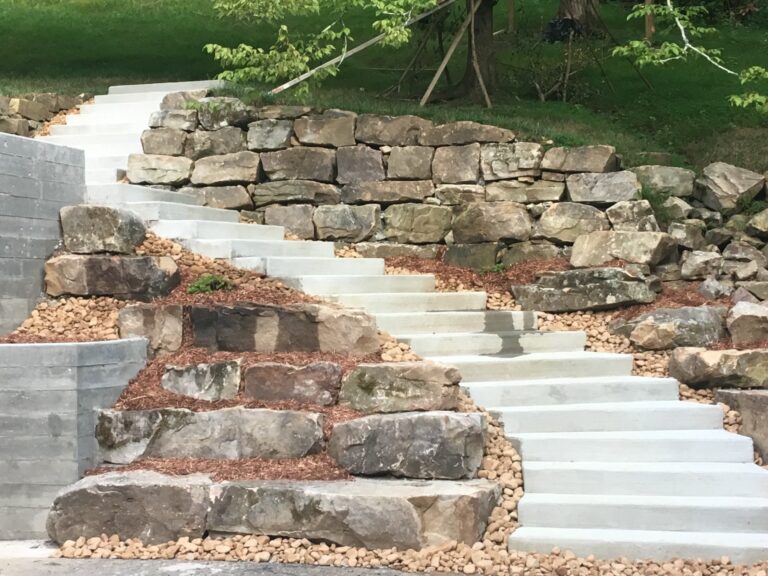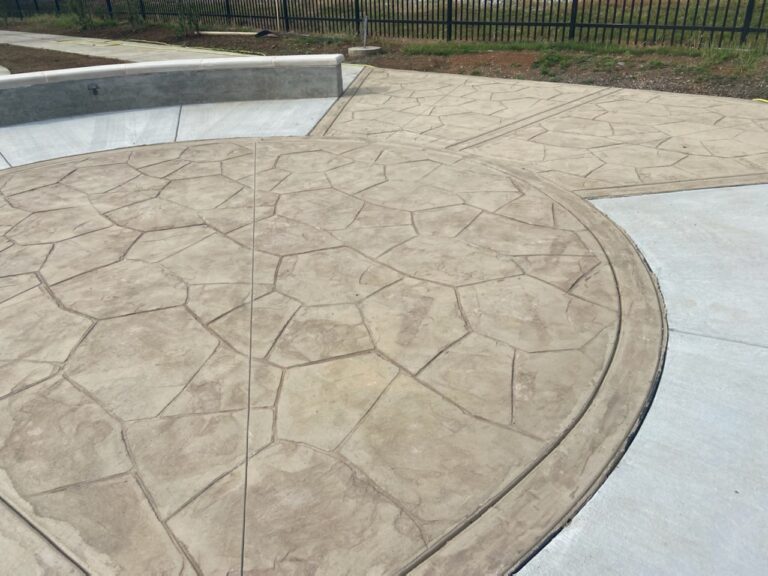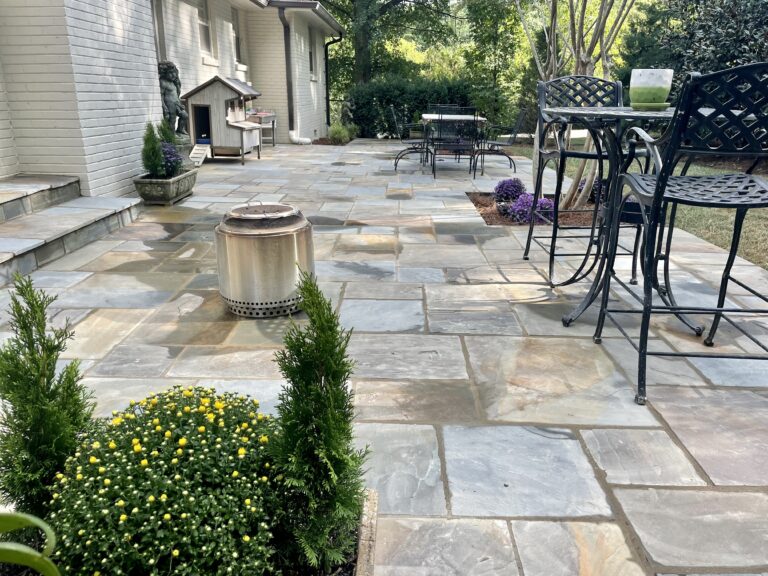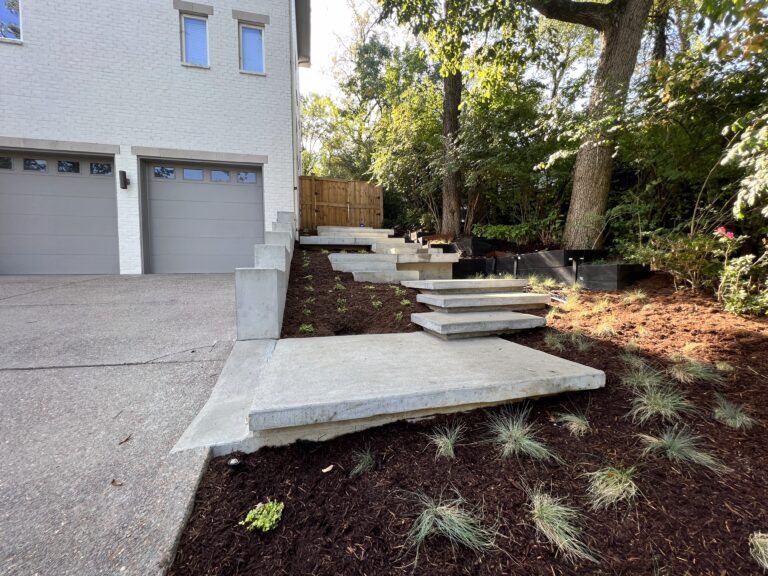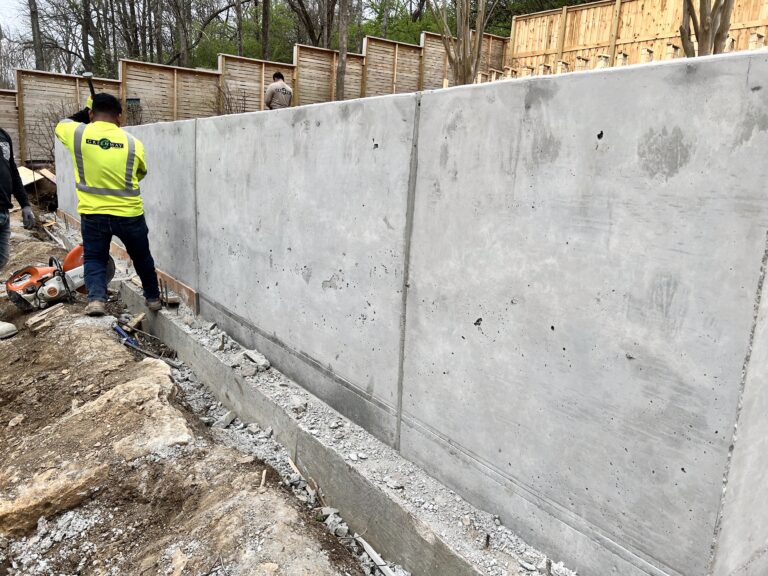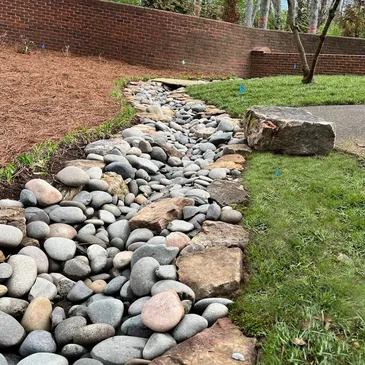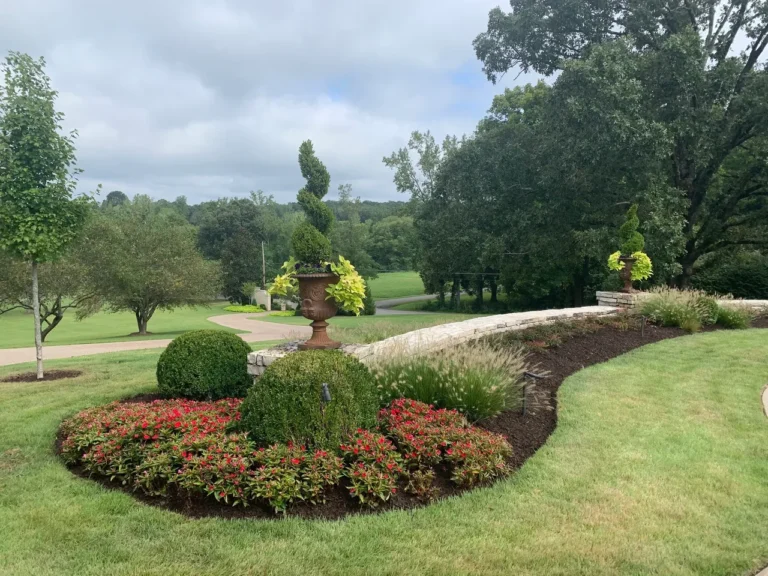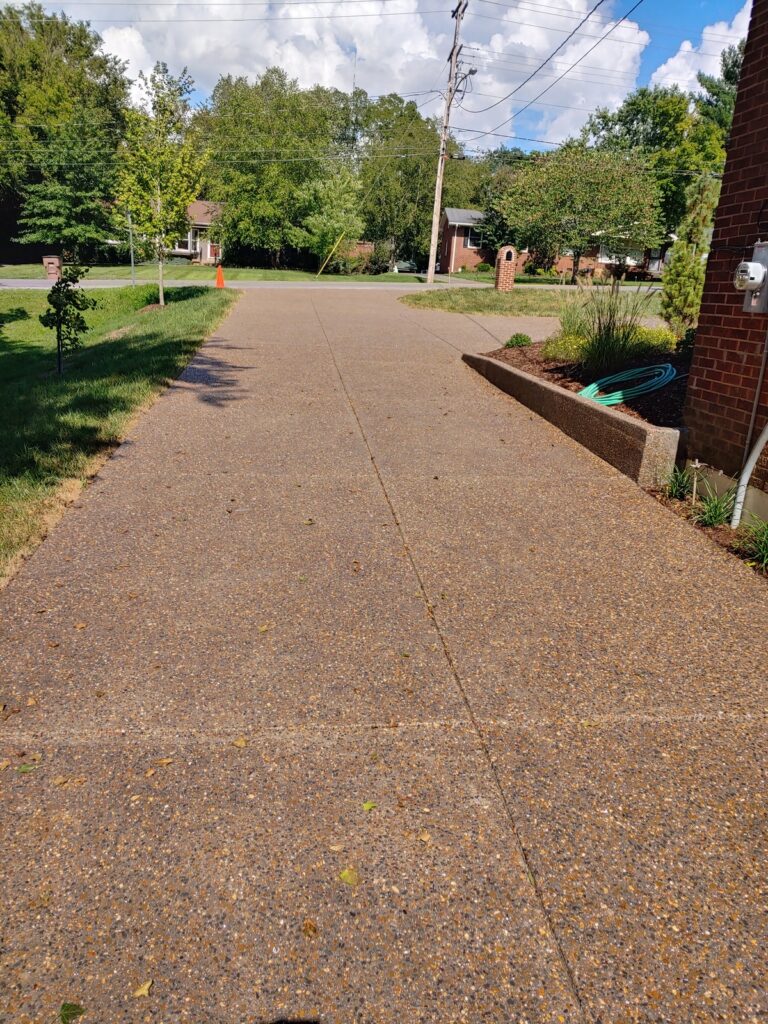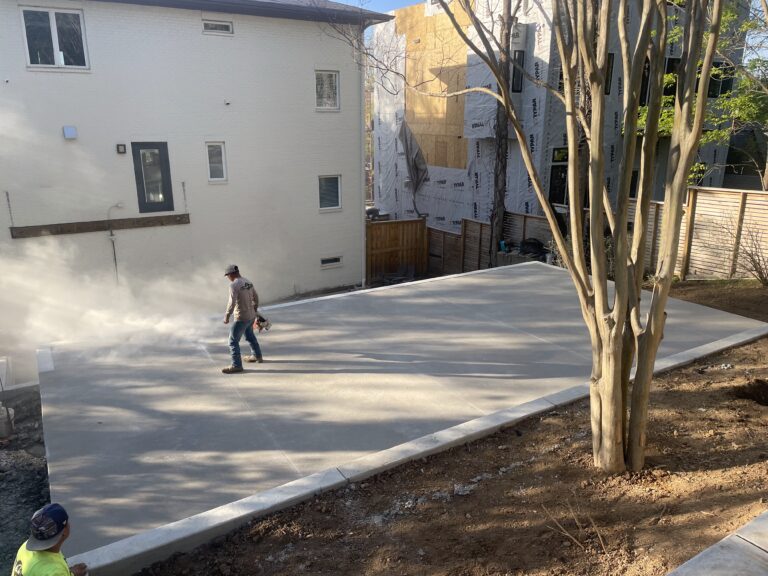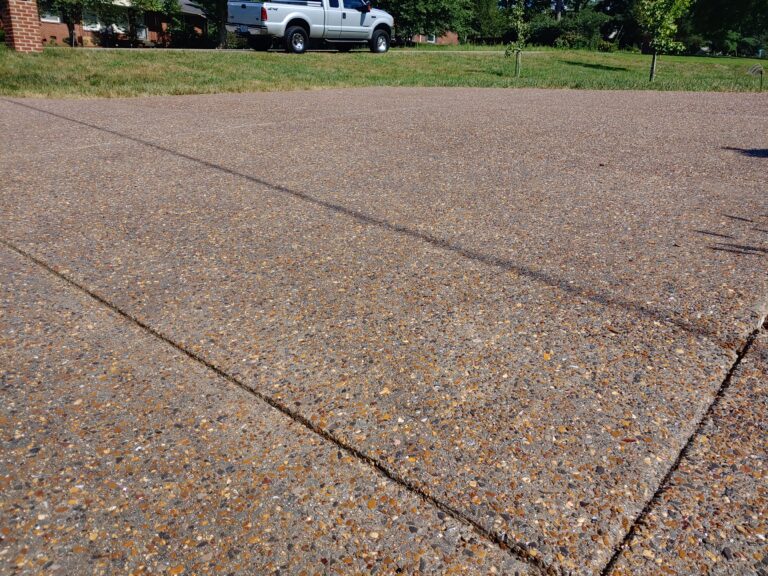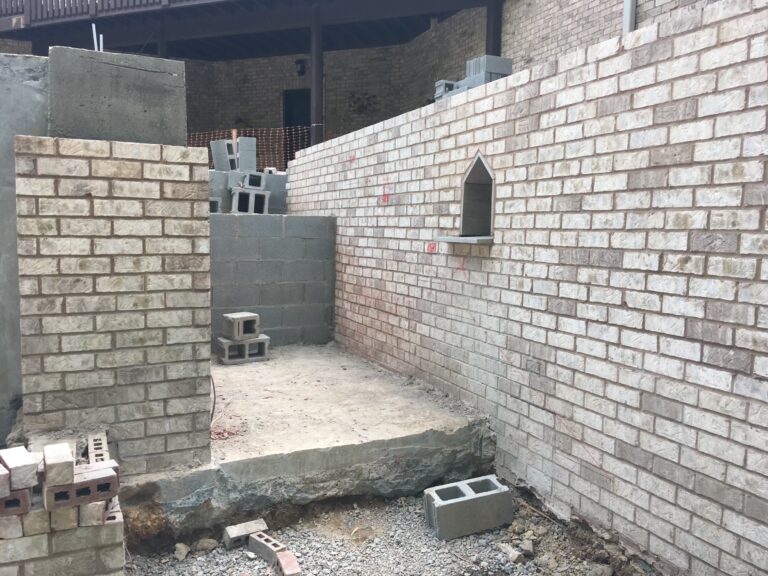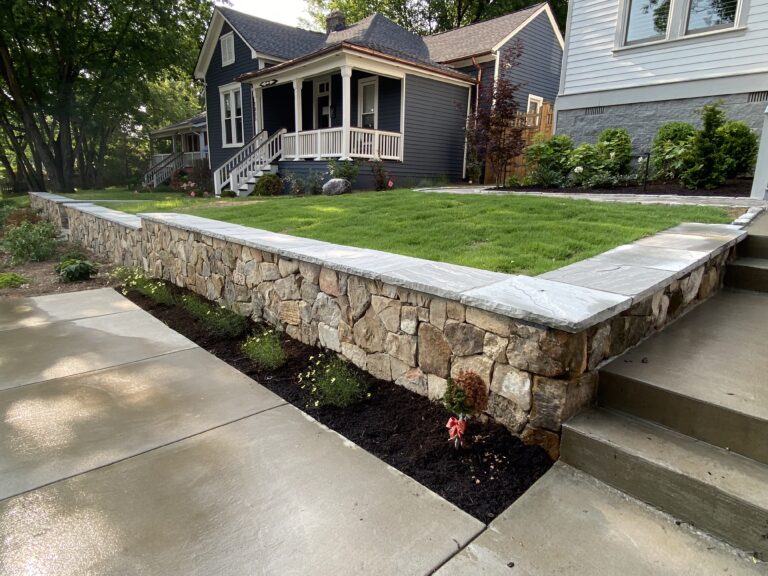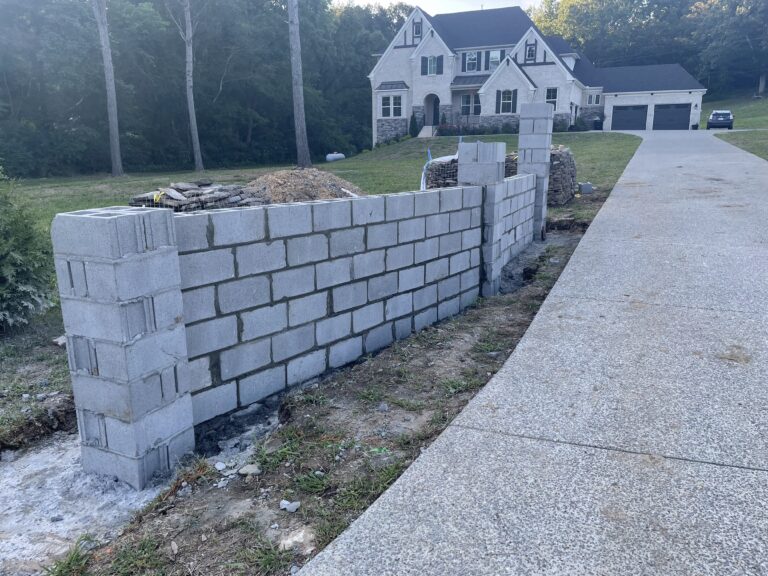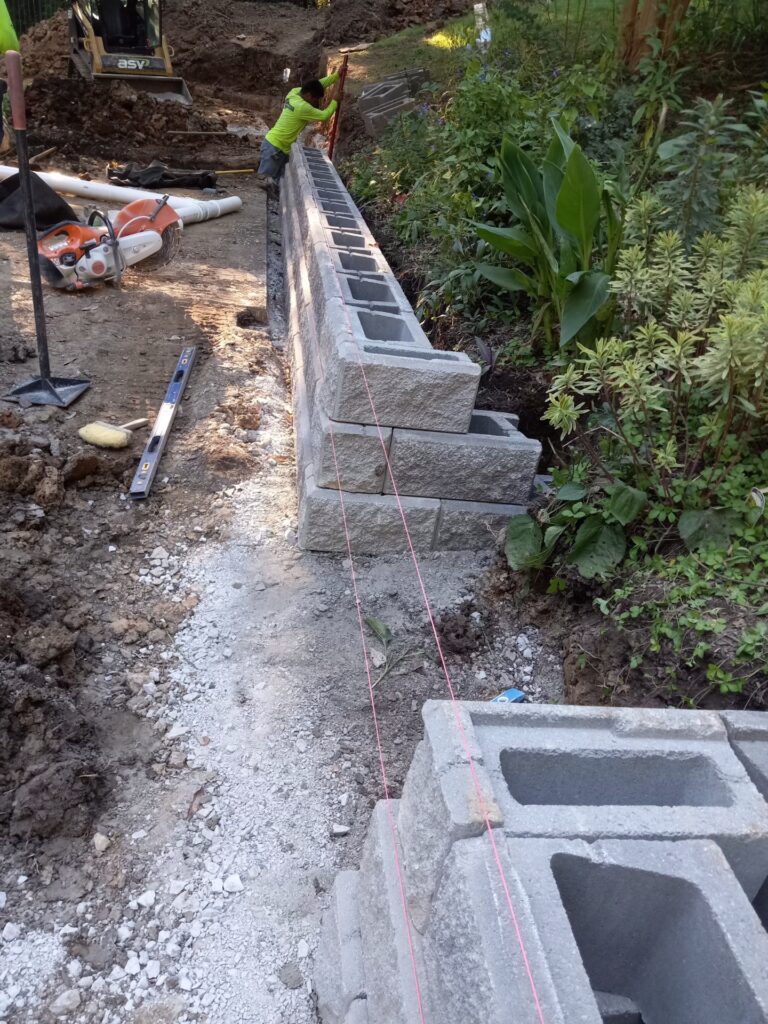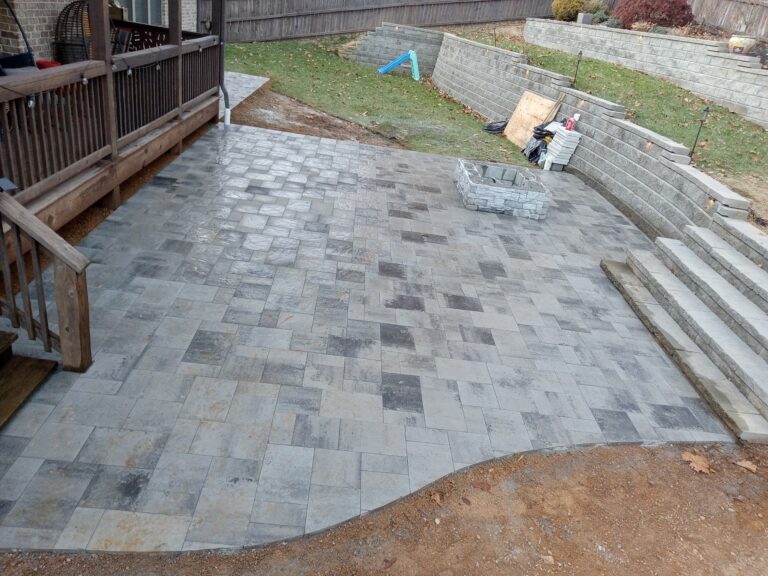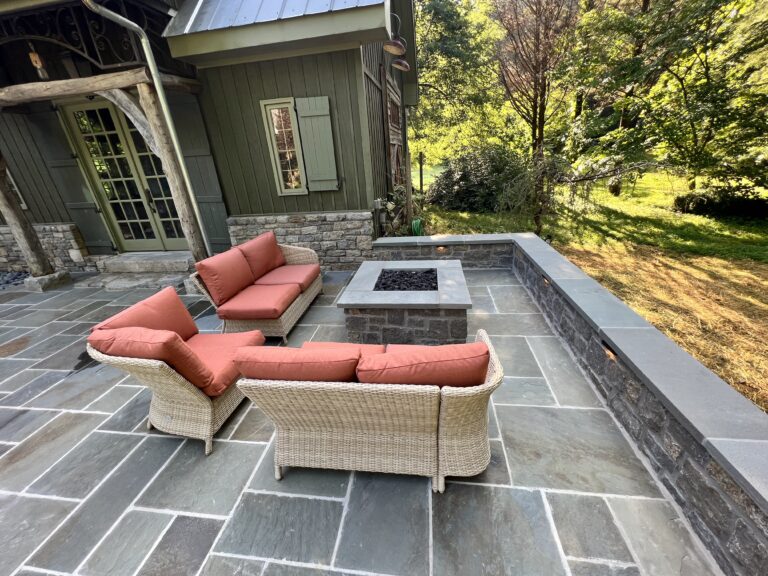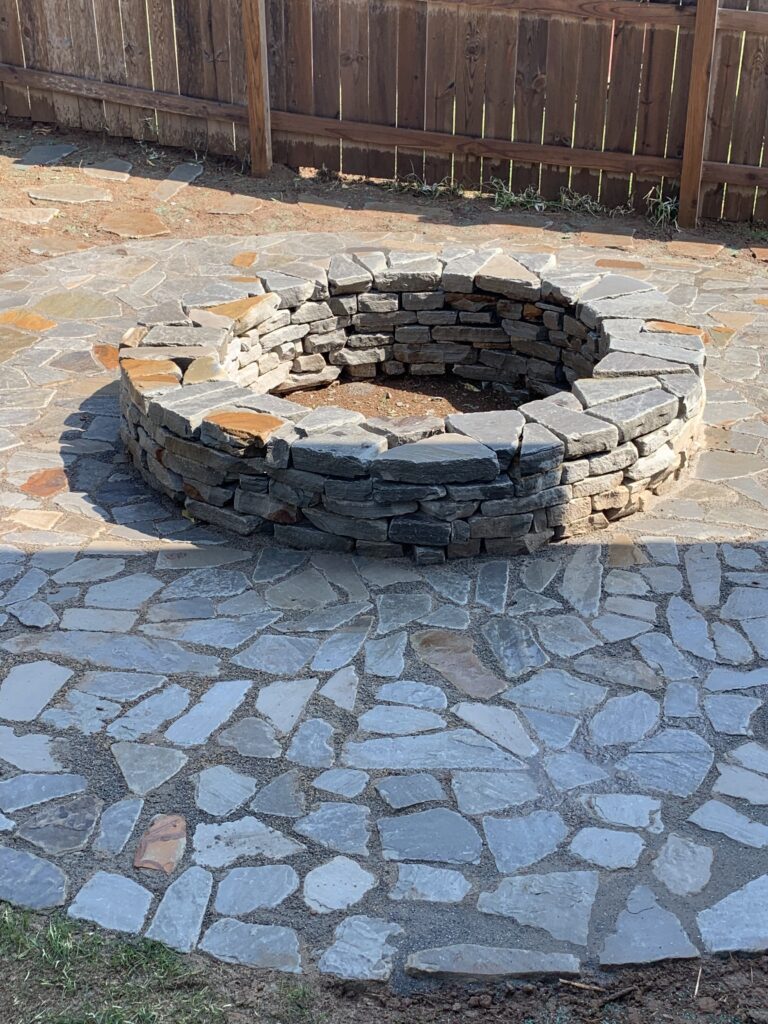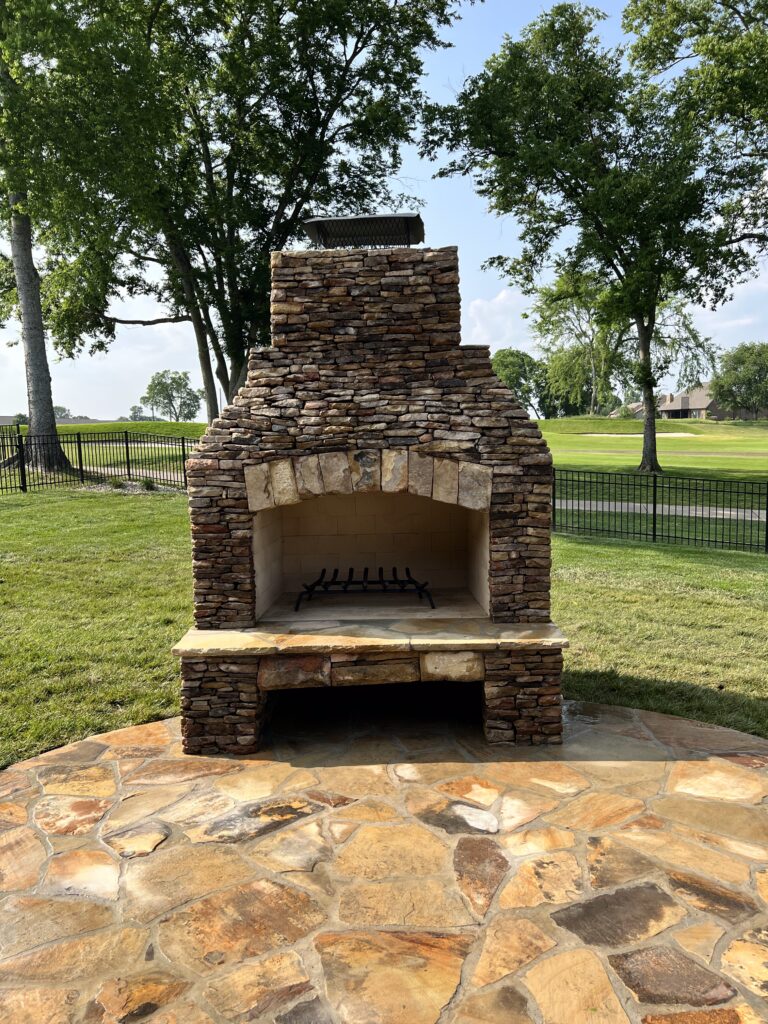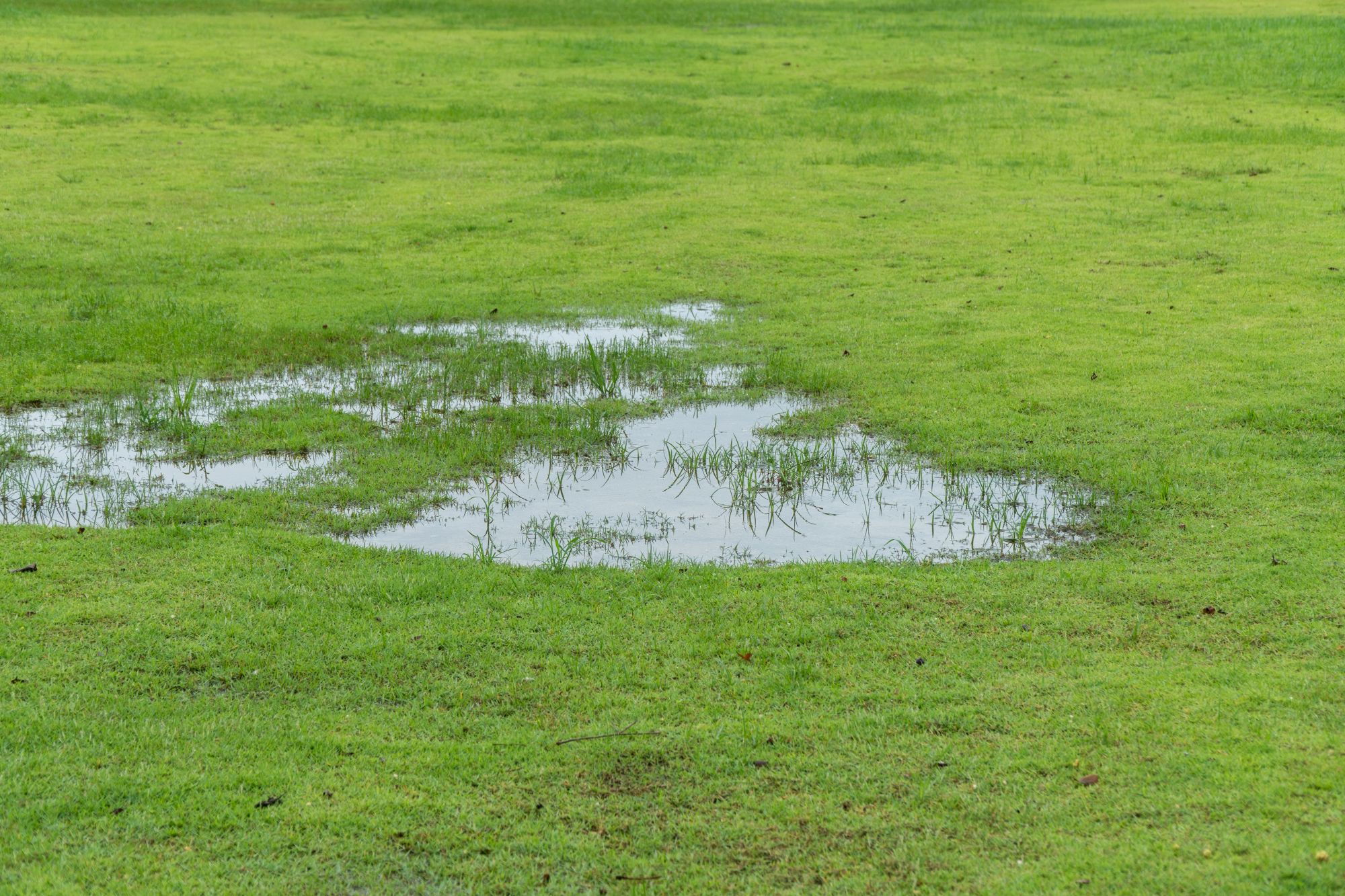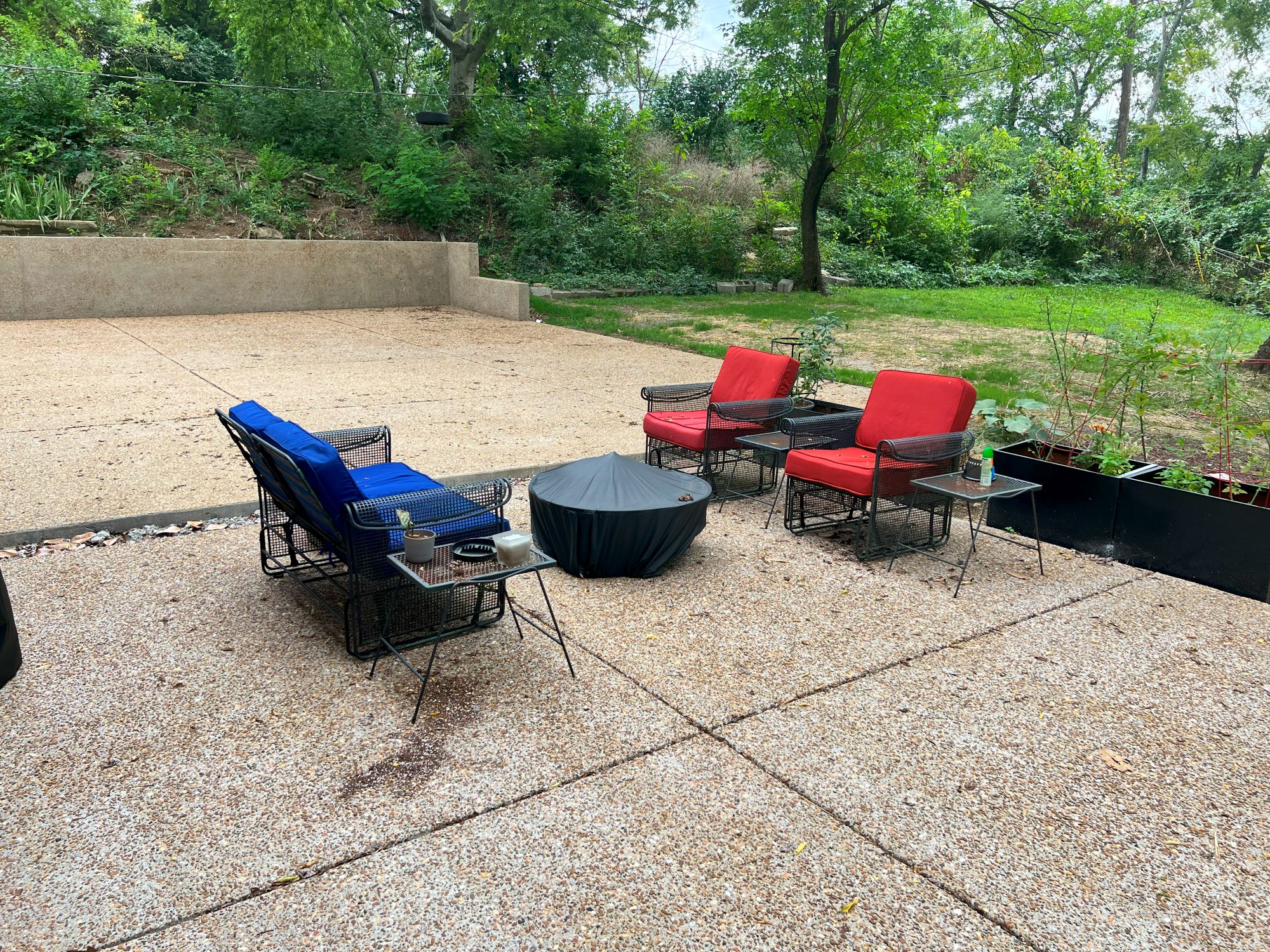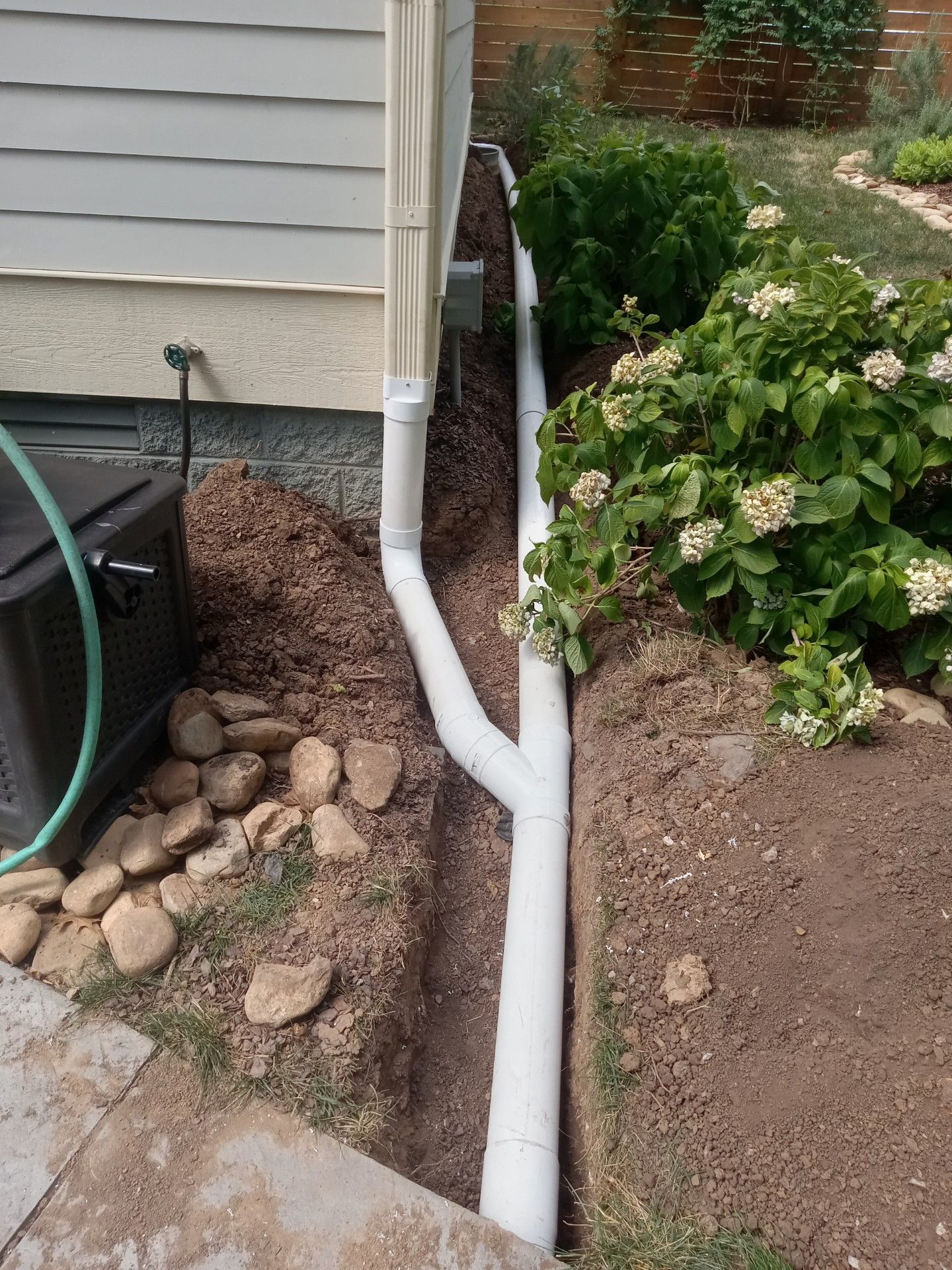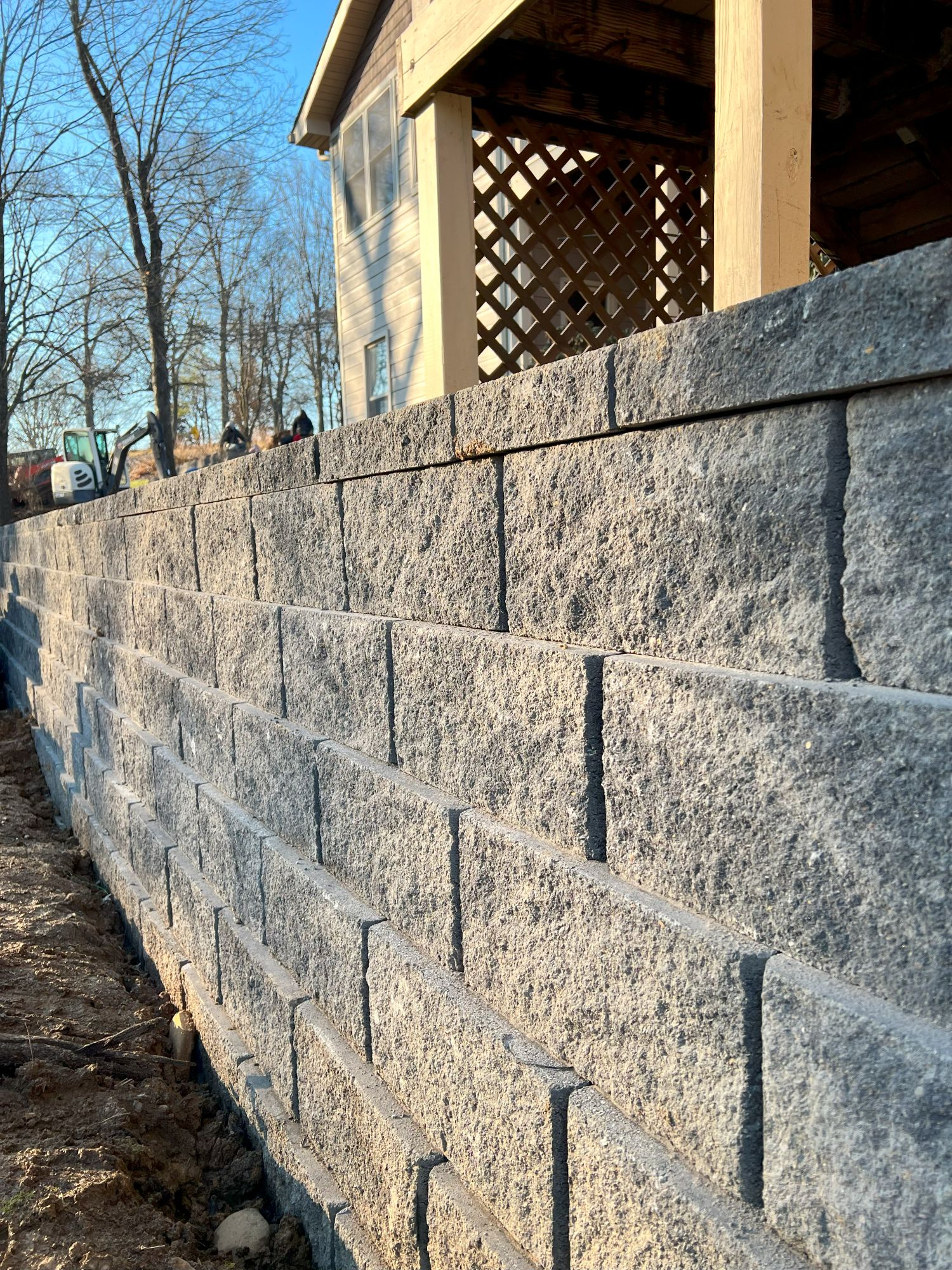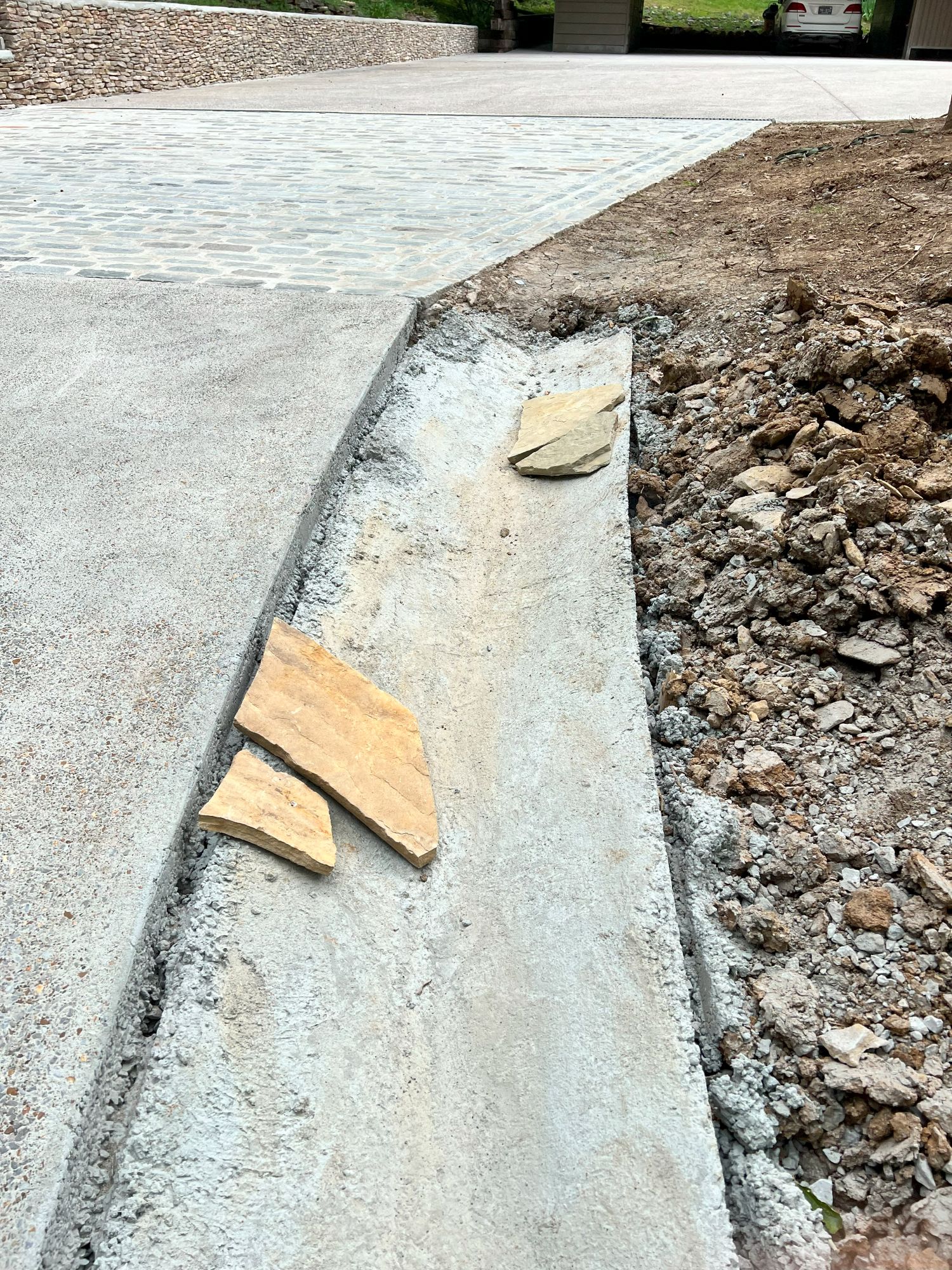The colder months can get mighty wet in Nashville. Your property needs to be able to handle all this moisture without flooding. Ideally, the ground should be sloped away from important areas such as your house, sheds, patios, and gardens so that the rainfall doesn’t pool there. In some cases, the natural topography of your yard creates a low-lying area near those critical spots and promotes water to collect. Large amounts of water can make the ground unstable for physical structures, cause damage to plants, and even leak into basements. Ground sloping that is too steep leads to erosion or washing away of soil. In these cases, the yard can be reshaped and changed through a process known as landscape grading.
What Is Landscape Grading?
In landscaping, grading refers to changing how the existing ground is sloped by moving soil from one area to another. Ideally, this should already be performed when new construction homes are being built in order to promote proper land drainage and create usable yard space, but that is often not the case. Older properties often lack this as well, leading to a situation where the house, deck, or other features are positioned in a low area where rain collects. In some cases, grading is done to eliminate angled ground and create a flat surface, like when installing a patio or driveway. In general terms, landscape grading is using machinery and knowledge to redistribute the ground in a more favorable layout.
How Is Landscape Grading Done?
Grading landscape is a labor-intensive job involving moving soil from an existing high area to a low area in order to change the angle of the ground. The goal is to create the highest points where important structures like houses and driveways sit in order to divert water away from them. By shifting the soil to change the angle, you’re able to redirect where water runs during rainfalls and guide it to a better location. For smaller projects, the grading can be done with the existing soil, but with a larger project, additional dirt may need to be brought in from a wholesaler for more drastic changes, such as filling in valleys. Heavy machinery is used to efficiently move the soil and reshape the earth, which is why specialized landscape contractors like Greenway of Nashville are important.
Land grading projects can range in scope from small square footage that only needs a minor depth change to massive projects covering entire properties with extreme height changes. There are considerations to be made when planning a grading project, including determining how much elevation change is needed, what the goal slope angle should be, how much additional soil is needed, and whether any additional drainage solutions such as retaining walls or drains would be beneficial. Another aspect to consider at the start of the project is whether any utility lines are present. Thorough planning is important to avoid electric, gas, water, and communications lines during excavation. There could be consequences to digging unprepared that are costly in more ways than one. You’ll also need to obtain any appropriate permits if your area of residence requires approval for land grading.
Once these decisions are made, the physical aspect of grading landscaping can begin. First, the landscape contractor will remove the upper layer of ground known as topsoil. Topsoil has a high concentration of important organic matter that promotes plant growth, so ideally this is set aside and replaced at the end of the project. After topsoil is out of the way, the ground beneath can be reshaped to create the desired slope that directs water to a desired drainage area. Equipment for digging and moving the earth is critical to doing the work effectively and efficiently, especially if the soil is hard or rocky. When moving the ground from one area to another, the goal is to create the ideal slope—around a 2% grade. This means for every foot of distance the ground runs, there should be a quarter-inch change in height. It’s subtle enough that it doesn’t create a waterfall effect but significant enough to encourage water to move away. When the ideal grade is achieved, the topsoil previously removed should be returned and the area smoothed out. The end result is ground that will drain properly and prevent water damage.
“Work with skilled Nashville hardscaping and outdoor construction professionals who understand your vision and respect your schedule. Contact us for a free quote!”
Why Is Land Grading Important?
The impact of landscape grading cannot be stressed enough. While it may seem unimportant, grading affects long-term lawn health, drainage, water damage, and usable space. When your land is positioned so that your house or other structures are at the lower end of a slope, they’re at risk of water damage. Rainfall washes downhill and lands near your foundation, creating the risk of structural damage. Your basement could end up flooded, and the foundation will be prone to cracks and mold, which worsen over time. Not only would these issues affect your family and daily life, but they could impact your ability to sell your home down the road. The cost to repair these problems once they occur is an expensive one that can be avoided by grading your property now.
Grading also helps reduce water pooling in different spots of your lawn. If you didn’t buy a waterfront property but you find storms change that temporarily, your land may need to be regraded. This helps divert water from the spaces it collects in and better distributes it for even absorption in the ground. Getting rid of water puddles will also help eliminate dead spots in the grass. Your gardens and plant beds benefit too, as they can die if there is too much water in the ground. Grading is also useful for preventing erosion of the lawn—which occurs when the slope is too high and causes water to move rapidly, taking material with it. Even the aesthetics of your home are affected by the slope of your property, as irregularity in the surface of your yard is less attractive than a smooth surface. If you’re considering installing a patio or driveway, grading is an excellent way to improve how much usable area you have to install that hardscape. Angled land may not be suitable for those projects, and grading allows you to create a level surface that will better suit your project.
Grading your property is one of the best investments you can make—it protects your home, creates usable space, and has a long-term impact on the health of your yard. If you aren’t sure what kind of grading your property needs or how to achieve it, your search for landscaping and grading near you is over! Landscape grading is one of several specialties Greenway of Nashville handles throughout the Nashville area. A free consultation with one of our staff will help you decide how to best protect your lawn and property long term—submit a form on our website or call us at (615) 238-4574.
Read more content related to:
